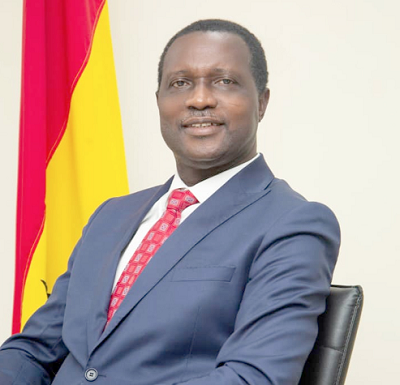
Sexual harassment policies for schools critical — Educational Resources
An advocacy organisation, Educational Resources has called on educational institutions to develop sexual harassment policies to guide their operations.
That, it said, was to serve as a guide to both teaching and non-teaching staff.
“There is the need to have written policies on sexual harassment for teaching and non-teaching staff at all levels of education in Ghana.
“Such policies must clearly define the types of sexual harassment and give examples of inappropriate behaviour, for the avoidance of doubt,” a statement signed by the Executive Director of Educational Resources, Mr Kodwo Brumpon, said.
Recent case
It said over the past weeks, a video of an Anglican priest at the St Monica’s College of Education, kissing some students went viral on social media and had subsequently led to some national debate.
It said the video itself “is a chilling depiction of our attitudes towards the issue of sexual harassment”.
The statement said the impunity with which the priest summoned the girls for a kiss on the lips, one after the other, in the full glare of other students and the wild cheering from the audience of students showed an appalling abuse of power on the part of the priest, and an equally shocking level of naivety on the part of the students, who did not seem to realise that something very wrong was going on.
Harassment policies
“The sexual harassment policies must spell out clear grievance procedures that must be followed once an incident occurs,” it said, adding that it might be useful to have a complaints manager at the district level to deal with such issues, since school administrators might be tempted to sweep incidents under the carpet.
“Training must be given to school administrators and staff on sexual harassment, what it is, how to avoid it and how to deal with complaints.
“Training must also be given to students on sexual harassment and the grievance procedures when it occurs. It is clear that many students are not aware of what constitutes sexual harassment. Their predicament is made worse by societal norms which prescribe that elders are always right,” it said.
Moreover, it said it must be made clear that complaints would be treated with anonymity to avoid victimisation.
Critical
Again, the organisation said it was also critical that there were adequate punitive measures that were enforced to act as a deterrent to others.
“Let us remember that Sustainable Development Goal (SDG) Four (a), among others, requires us to provide safe, non-violent, inclusive and effective learning environments for all.
“It is imperative that all stakeholders come together to create harassment-free atmospheres for teaching and learning,” it said.
